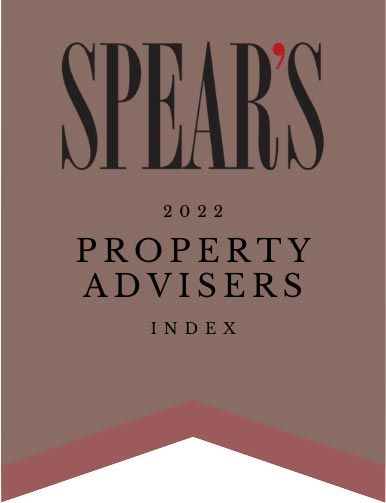Insight from specialist mortgage brokers Large Mortgage Loans shows buy to let investors are increasingly investing in short term lets, commercial property and Homes of Multiple Occupancies (HMOs).
Specialist mortgage broker Large Mortgage Loans have reported an increasing number of landlords turning to the short-term lettings market, monetising their property investments through sites such as Airbnb and Home Away. Rising interest rates, increased regulation, erosion of tax relief and stamp duty rises have all hit buy to let investors, forcing them to seek out new opportunities.
Large Mortgage Loans MD Richard Merrett says, “Potential rental income can be considerably more than with a long term letting agreement and owners won’t be hit by increased regulation on landlords which came into play last year. These factors are making the short-term lettings market an attractive proposition for many traditional buy to let investors.”
Furnished holiday lets benefit from tax advantages
Although still subject to the 3% stamp duty surcharge on second homes, furnished holiday lets are treated as a trade by HMRC, rather than an investment. That means mortgage interest costs, council tax, utility bills and repair costs can be set against income, before tax. Capital allowances may be available for items such as furniture, equipment and fixtures and there’s the opportunity to roll over capital gains. Therefore, if you sell and buy another holiday let, any gain from the first can be deferred until you sell the second.
Research conducted by Large Mortgage Loans shows that, in the prime central London property market, a one bedroom flat can command £230 per night on Airbnb, securing a potential return of £1,610 per week1. On a long term letting basis, one-bedroom flats in the same terrace are advertised at between £550 and £650 per week,2 meaning – on the face of it – short term lets could offer as much as three times the return of long term lets.
Seek out a specialist broker
Merrett is swift to point out that these types of returns are often ward won, starting from the first task of securing a lender. He says, “There are over 3,000 mortgage products currently on the market for long term buy to let investors. When you look at short term lets, you enter into the specialist, niche market and there are currently only a dozen or so lenders who will consider this criteria.”
Short term lets will also cost more in borrowing, with the team at Large Mortgage Loans reporting an increase of between 1% and 4% on traditional buy to let mortgages. “Every situation is different” says Merrett. “Mortgages for short term lets won’t be freely available on the High Street and you’ll need a specialist mortgage broker who can understand your situation and tailor the right package to your circumstances.”
“The feedback we receive from clients who have moved into this space is largely positive,” says Merrett. “They’re getting great returns from genuine clients who appreciate the benefits of a home-from-home environment as an alternative to a hotel.”
Property investors further diversifying into HMOs and commercial property
Not content with the short term letting market, savvy property investors are finding other ways to secure a strong return on their investment, with Large Mortgage Loans also reporting growth in interest for mortgages on Homes of Multiple Occupancy. HMOs are defined by the Government as “A property rented out by at least 3 people who are not from 1 “household” (e.g. a family) but share facilities like the bathroom and kitchen. It’s sometimes called a “house share”.
These homes have a much higher potential yield but finding mortgage providers willing to lend against these properties can be challenging without the right mortgage broker. Merrett says “The consequence of a lack of lenders means that these properties can be difficult to sell. For investors with access to the right lending, it means they can be snapped up at very attractive prices. Couple that with the potential yield, and you could have yourself a great investment!”
Another area of growth is commercial units. Despite reports of doom and gloom on the high street, these units have much lower stamp duty rates – a maximum of 5% over £250,000 versus 8% over £250,000 and 13% over £925,000 on buy to let or second homes. Added to this, they often require less maintenance and work on longer leases. Therefore, they’re increasingly being seen as a better long-term investment for property speculators.
Property remains a great option for savvy investors
“Much has been reported about the myriad challenges facing buy to let investors” says Merrett, citing reports of a ten-year high in the number of landlords planning to reduce the volume of properties across their portfolios. In the face of this, there remains an appetite for buy to let investment, with almost half the population believing that saving for retirement through property is the best use of their money.
“The fact remains that – even in the face of rising interest rates, increased regulation and erosion of tax relief – long term speculators still have confidence in the UK property market” says Merrett. “The British love affair with owning property shows no signs of abating, resulting in a continued appetite for rental stock from those unable or disinterested in owning their own property. Whilst that situation continues, property investors will continue to reap the benefits of buy to let investments.”
| Property type | Stamp duty | Tax on rental income | Capital Gains Tax | Lending criteria |
|---|---|---|---|---|
| Buy to let – long term rental agreement | 3% surcharge on more than one home | Tax changes phased in between 2017 and 2020 will reduce tax relief on mortgage interest to 0% | 18% or 28% dependent on total income | More than 3,000 mortgage products available |
| Short term holiday let | 3% surcharge on more than one home | Income and expenses can be set against income, before tax | 18% or 28% dependent on total income and opportunity to roll over capital gains | Restricted to circa 12 lenders with interest rates as much as 4% higher, dependent on LTV |
| HMO | 3% surcharge on more than one home | Tax changes phased in between 2017 and 2020 will reduce tax relief on mortgage interest to 0% | 18% or 28% dependent on total income | Restricted to circa 20 lenders with and interest rates as much as 4% higher, dependent on LTV |
| Commercial let | Commercial let A maximum of 5% over £250,000 20% flat rate Circa 25 lenders offering mortgage products | 20% flat rate | Circa 25 lenders offering mortgage products |
Large Mortgage Loans top tips for landlords looking to diversify their lettings portfolio
Short term letting
Speak to a specialist broker – If you’re on a regular buy to let mortgage and letting the property short term without consent, the repercussions can be significant and can even result in you losing your property. Don’t be tempted to circumnavigate the rules, get in touch with a specialist broker and put the right lending package in place.
Ensure your figures stack up – When assessing lending criteria for a short term or holiday let property, lenders can look at a variety of factors including a) personal income b) they can use a worst-case scenario rental assessment based on a standard long term let c) use the actual turnover and costs for an existing property d) use projections from a short term let specialist agent. Talk to a broker, ensure you understand what the lenders will need and that the figures add up before progressing too far down the track.
Plan for uncertainty – On the face of it, returns on a short term let can be irresistibly strong. But it’s unlikely your property will be let 365 days of the year, so always bear this in mind and manage your expectations.
Be realistic about your costs – If you want to get a good price per night for your property, clients will expect it to be clean, well maintained and experience a slick check in and check out process. This will mean you’ll need to enlist the services of a cleaner and have a way to manage the property to keep on top of all of these elements, whether that be through a company or employing and individual.
Make sure you’re within the law – Leasehold properties can restrict or even ban short term subletting, so if you do own a leasehold property, check out the legalities before listing.
Protect yourself – Ensure your insurance covers short term lets. If your property is let out on a regular basis, at some point something is bound to get damaged or broken and big bills for repairs will eat into your profits.
Take proper tax advice – There are strict criteria to have your property treated as a holiday let and if it doesn’t meet these you’ll face paying tax as if it was a standard rental property. Speak to an accountant so you’re confident that your investment will stack up.
Homes of multiple occupancy
Seek out the best lending options – Homes of multiple occupancy – or HMOs – can be difficult to secure lending against and therefore, often sell for very reasonable prices. Finding a mortgage against an HMO need not be a difficult task, if you work with the right mortgage broker.
Know your market – Similar to short term lets, HMOs often attract transient tenants so be prepared for a high turnover and plan ahead to ensure you have the financial provision for fallow times.
Commercial lettings
Know your responsibilities – Similar to private landlords, commercial landlords have a number of areas which fall under their responsibility such as fire safety and checks on gas and electric appliances. Ensure you know what you’re responsible for before you enter into the commercial sector.
Research your tenant – Make it your business to know their business. Carry our background checks and ask for references from previous landlords or trade creditors. If it is a Limited Company, look at the accounts and find out who the directors and shareholders are – if you’re not happy with the company accounts, you can ask them for personal guarantees.
This information does not constitute financial, legal or accounting advice. Investors should seek their own independent advice before proceeding.
YOUR HOME OR PROPERTY MAY BE REPOSSESSED IF YOU DO NOT KEEP UP REPAYMENTS ON A MORTGAGE OR ANY OTHER DEBT SECURED ON IT




















